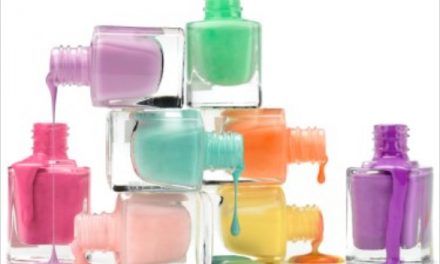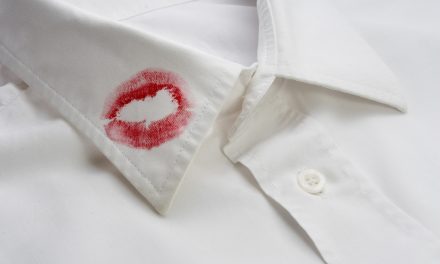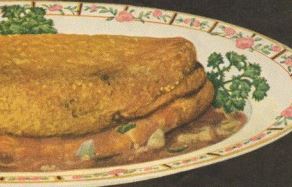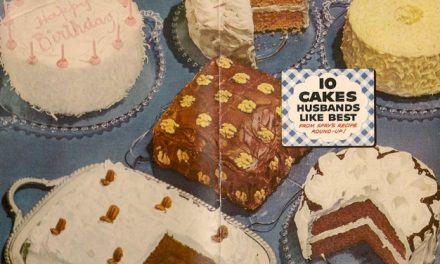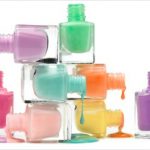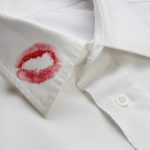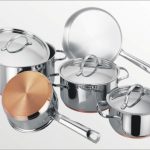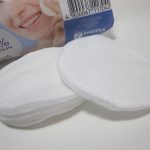Everyday Helps for Women
How to make a jardiniere (or flower pot)
Take all your pretty pieces of china you can find and for the foundation use anything having a nice shape suitable for a flower pot. Then take some putty, roll to a thickness of half an inch and place on the utensil;then put on the finest and prettiest pieces of china, pressing them as firmly as possible into the putty. The pieces should not be more than an inch in diameter and should be placed as closely together as possible. The pieces around the top of the jardiniere must be smooth, so I use only the edges of plates, saucers or of bowls.
Only a small amount of putty must be used at a time. If it is left till next day, it will harden. When your jar is covered all over and well hardened, take some gold paint and a fine brush and paint between the china. This covers the putty that shows. You can’t realize what a pretty flower pot this is until you have made one. The more flowers and colors on the china, the better. Can be set in a dining room or parlor and a plant put in it, making a most pretty and attractive home. –Miss Elsie Schurra Box 64, Sunnyvale
To clean before storing
Heat nice, clean wheat brans until you can scarcely bear your hand in it. Rub it into the fur thoroughly the wrong way. Then shake it out well and brush the fur with a clean brush the opposit (right) way till the bran is all out. Then pack away with camphor. Mrs. Percy R. Gallison, Sonora CA
Iceless refrigeration
Half fill a large, flat bottomed bowl of earthen ware or granite ware with cold water, set in this the vessels containing milk, butter, sauces, etc. Cover with napkins which dip down into the water and get the whole thing in a draft;evaporation will keep everything sweet and cool.
To prevent fruit pies from boiling over while baking, add a tablespoonful of cornstarch to the fruit. Sweeten the fruit to taste, add cornstarch and heat before adding the crust. The whites of eggs will whip more readily if a pinch of salt is added to them. If the eggs are placed in cold water for a time before being broken they will whip easily.
A small quantity of sassafras bark placed among any kind of dried fruit will keep it free from worms.
To clean glass bottles: Chop up a potato very fine and put it in the bottle with some warm water and shake it rapidly until it is clean.
To prevent silverware from discoloring, put a lump of camphor in the case with the silverware when packing it away.
One teaspoonful of ammonia to a teacup of water, applied with a cloth will clean silver perfectly.
All glassware, lamp chimneys and window glass may be polished better if washed in hot, clean soap suds and wiped dry without rinsing. Miss K. H.
Rules for household work
Household work should be shared by the whole family. It should not fall on mother’s shoulders. With system, housework could be made much easier. Take washing day for instance. Unless there is a very good reason for postponing it, I want the washing done on Monday; then the garments can be ironed, mended and put away. Let every member of the family air their bedrooms
and let the daughter or daughters take care of them. Housework requires as much brainwork as any other business.
There are many “short cuts” to work if people will only look for them. Save steps. If there is something to be carried down the cellar, look around and think if there is anything else to be carried there, so you will not have to make two trips.
Be punctual yourself and expect all the family to be the same. Be sure meals are served on time.
The modern housekeeper seldom runs the danger of becoming drudge. Those who are wise make use of women’s time savers. The homely “wrinkle” becomes worth its weight in gold.
“Always rinse out a saucepan with water before boiling milk and your pan will never burn at the bottom,” says one old friend. Another says that a lather of shaved white soap, water and vinegar cleans the insides of bottles;vinegar cruets may be cleaned by a few shot. If the hands are grimy after working around the stove and sink, rub well with boiled potato. When the soup is too greasy, push the pan to one side so the heat will let it boil on one side: the grease will rise on the other side and can be removed with a spoon.
If pie or tart burns, when it is cold, take off the burned part with a sharp knife, then brush the tart with the white of an egg or the pie with yolk. Pt in hot oven and the pie and tart will be glazed over and all will be serene.
Put a handful of salt in the last rinsing water, and the clothes will not freeze so quickly.
Salt fish will freshen quickest by soaking in sour milk.
Rub a little soap on bureau drawers if they stick.
A teaspoon of glycerin in the rinsing water makes flannels look and feel new. Mrs, J.F.H.
Making glass tough
Tumblers, wineglasses, lamp chimneys and other glasses may be rendered so durable as to be almost unbreakable by placing them in a saucepan of cold water and gradually bringing it to boiling heat. Care should be taken that they do not touch each other during the bubbling up of the liquid.
Shabby leather bags may be improved in appearance by being rubbed with well beaten white of an egg and then polished with beeswax and turpentine, the final rubbing being given with a soft clean cloth.
A smooth strong stick, about 40 inches long, with a notch to one end is a useful thing to have in the house. With it pictures may be lifted by the wire from their hooks and replaced without climbing up and down a stepladder.
When the kitchen table becomes spotted or discolored, it may be bleached with lemon. Cut a lemon in half and ru it over the entire surface of the wood. Rinse well with clean water. The result will be a smooth snow white top. Pantry boards may be treated in the same manner. Mrs. E.W.
For evening slippers
For girls who can only afford one pair of shows, perhaps this hint may prove useful. If little rosettes the color of the dress (or the ribbons which trim the dress) are made they may be put on each time to match the dress. Every girl can make bows and rosettes, and for those who are handier with their needle, there are ribbon flowers and butterflies which they can make.
These may be put on either black or white shoes for real dressy occasions. D. O.
EggNog for invalids
Separate the yolk from the white of an egg, heat the yolk thoroughly and then beat the white to a froth, add a heaping teaspoonful of sugar, a trifle of salt. Stir these into the yolk an then add the white. Add enough milk to fill the glass and stir. Add either one, or 1/2 teaspoonful of sherry. The salt offsets the flavor of the egg. MRS. J.F.
Ten Minute Hints
The contents of the inner vessel of a double boiler will cool much more rapidly if the water in the outer compartment is salted in proportion of half a cup of salt ro two quarts of water.
To save carpets-If possible, always have an interlining of paper between the floor and carpet, and if it can be arranged. It is a wise plan to turn the carpet around occasionally to equalize the wear.
Clean mirrors with ammonia water. Do not let the direct rays of the sun fall on mirrors if it can be avoided a they affect the metallic coating on the glass.
Sawdust and chamois leather used as polishers after cut glass has been thoroughly washed in soap suds, will make it glisten and sparkle.
To restore the color to ivory handled knives after they have become yellow, rub them with fine emery or sandpaper. This will restore their whiteness and take out the spots.
If the kitchen floor be covered with oilcloth or painted it will save much cleaning.
A food chopper or cutter which has varying size cutters will very soon pay for itself in the saving of small portions of food that can be utilized by its means. MRS. C. L.
Household helps
When buying apples, choose those that weigh heavily. These are the best and there is less waste in the large ones than in small ones.
In frying fish, if a teaspoon or two of lemon juice is added to the fat the flavor is improved.
Cakes keep best in tin boxes, as wooden ones are liable to give them a disagreeable taste. Brown paper should be avoided for the same reason. Always use white. If half an apple is kept in the cake box, it keeps them moist and imparts a nice flavor also MRS J.H. O’B.
A help in the kitchen
Place a light box in a chair to make it high enough to sit at the table to work. You can iron, wash dishes, mix bread, roll out pie crust and many other things with far less fatigue than if standing.
All women who have children, whether boys or girls, should teach them early to aid in the kitchen. MRS. E.H.H.
Uses of salt
Salt in solution is an antidote for many poisons.
All skin diseases are relived by salt added to water.
A pinch of salt added to mustard prevents it from souring.
Salt in the water cleanses glass bottles.
Cut flowers may be kept fresh by adding salt to the water.
Bread insufficiently salted becomes acid, dry and crumbles.
Brooms soaked in hot salt water wear better and do not break.
Salt dissolved in alcohol or ammonia will remove grease spots.
Salt hardens gums, makes teeth white and sweetens breath.
Salt thrown on any burning substance will drop the blaze and smoke.
Weak or tired eyes are refreshed by bathing with warm water and salt.
Weak ankles should be rubbed with a solution of salt water and alcohol.
Housemaids should pour salt water after using it down the drain pipes.
Add salt to water in which black and white cotton goods are washed.
A smoldering or dull fire may be cleared for broiling by a handful of salt.
Black spots on dishes and discolorations on teacups are removed by damp salt.
Lemon and salt also removes stain from the fingers. Do not use soap afterward.
SAlt improves the coat of a horse, and gall is prevented by bathing with salt salt water.
Hemorrhage from tooth pulling is stopped by filling the mouth with salt and water.
All salads should be soaked in salt and water to destroy animalculae or small worms.
Rose colds, hay fever and kindred affections may be much relieved by using fine dry salt like snuff.
Salt cleanses the palate and furred tongue, and a gargle of salt and water is often most efficacious.
Ink stains from carpets and tablecloths (if fresh) can be removed by successive applications of dry salt.
Feathers uncurled by damp weather are quickly dried by shaking over fire in which salt has been thrown.
When contents of pans bowl over, salt on the range prevents odors and the spot is more easily cleaned.
Rattan, bamboo and basket work furniture may be thoroughly cleaned by scrubbing with a brush and salt water.
Baths, washbasins, polished slate and stove slabs are quickly cleaned by rubbing with dry salt before washing.
If a small teaspoon of salt be added to a quart of milk, it will be preserved sweet and pure for several days.
A pinch of salt on the tongue followed by ten minutes afterward by a drink of cold water, often cures a sick headache.
Dyspepsia, heartburn and indigestion are relieved by a cup of hot water in which a small teaspoon of salt has been melted.
Dry rot in gateposts, joists and beams may be checked by equal proportions of salt and chloride of zinc, 100 pounds each of each to 350 pounds of water.
Nasal catarrh is often cured by a syringe of weak brine or by snuffing fine, dry salt up the nostrils.
Pulverized rock salt in equal quantity off turpentine is excellent dressing for felon. Apply a rag soaked in this every 24 hours.
Japanese and plain straw matting should be washed with salt and water and rubbed dry. This keeps them soft and prevents brittle cracking where traffic is heavier.
Bedroom floors may be kept cool and very fresh in summer if wiped daily with cloth wrung out of strong salt water All microbes, moths and pests are thus destroyed.
All colored cotton materials will not fade by subsequent washing if placed in boiling water in which three gills of salt to every four quarts of water have been melted. Leave garments in water till cold.
When cabbage, onions or strong smelling vegetables have been boiled in pans, to prevent odors clinging to them, place some salt on the stove and turn the pans bottom side up over the salt. In a few minutes, the pans will smell sweet.
If 20 pounds of salt and 10 pounds of muriate of ammonia be dissolved in 7 gallons of water and bottled, many fires may be prevented. By splashing and spraying the burning articles, the fire is soon extinguished. An incombustible coating is immediately formed. A.M. Perkins
Save coal and time
After our six o’clock dinner, I sprinkle on a little coal, if necessary, and close all drafts. At 9:30 or 10, I turn the grate over once, fill the firebox nearly full of coal, and see that all drafts are closed excepting the one in the pipe, which if left partly open for the gas to escape. In the morning, I turn the grate over twice, open all drafts, and in a short time, I have a fine bed of coals and a hot oven.
I not only think it a saving of coal, but of time as well to keep the fire overnight, and you also have a warm kitchen to come into from your warm bed, which may save doctors’ bills. If after trying the above, you find that your fire dies down too much or goes out, do not close the pipe draft at all, for it will mean that the dire is shut off too much. MRS J.G. E

